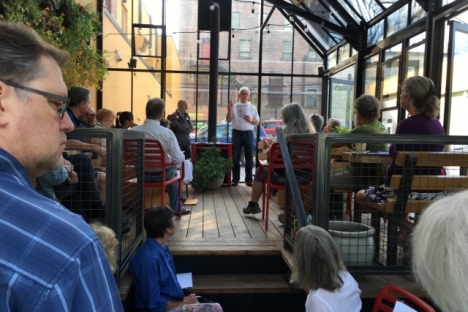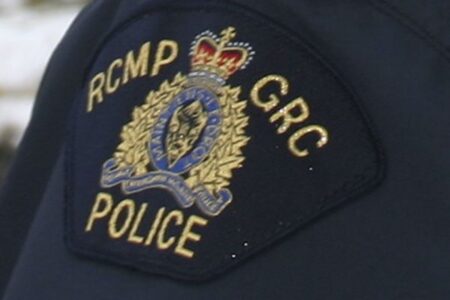Casting a vote that counts - the people speak on electoral reform
First past the post may become a thing of history on the political landscape as a move to gather public input on electoral reform nears the deadline.
The federal government has established a special committee on electoral reform, tasked with a mandate to identify and study viable alternatives to the current federal electoral system.
The committee will look at preferential ballots and proportional representation, as well as mandatory and online voting.
The special committee on Electoral Reform is accepting public input until Oct. 7 and has a deadline of Dec. 1 to submit a report to the House of Commons.
Wayne Stetski, NDP MP for the Kootenay-Columbia riding which includes Nelson, toured 14 communities in the region this summer to gather information on reform for the committee. His final report will contain information that has come from the tour, as well as from email and text.
He believed electoral reform was necessary to improve democracy in Canada.
“(There’s a) desire to have every vote count,” among Canadians, said Stetski.
South Okanagan-West Kootenay NDP MP Richard Cannings, who represents the western half of the former riding once claimed by Alex Atamanenko, said electoral reform is a necessary shift.
“After a series of majority governments where ruling parties had less than 40 per cent of the popular vote and 100 per cent of the legislative power, 60 per cent of Canadians voted last fall for parties that had promised that 2015 would be the last federal election held under the old first-past-the-post system,” he said.
In his tour across the riding Stetski found several common themes, including the key of idea of proportional representation.
“(It’s) one model of interest where you cast two votes, one for your candidate of choice and a second one for your party of choice,” he said.
The other idea that came up was to have more education on democracy and voting in all of the high schools.
At the heart of electoral reform is a desire that Canadian electors are feeling increasingly disenfranchised with a system in which half the votes don’t count, said Cannings.
“People are frustrated that majority governments elected with 39 per cent of the vote feel they have a mandate to do whatever they want, and forget that 61 per cent of Canadians voted for someone else,” he said.
The federal government is aiming to have a different voting system in place for the 2019 federal election. However, the Conservatives are pushing for a referendum on the issue before any change is made.
In the last federal election 70 per cent of Canadians voted for the Liberals, NDP and the Green Party candidates. The “first past the post” electoral system gave the Conservatives and Stephen Harper a majority government for three straight terms prior to this despite obtaining only 39 per cent of the vote.
Under the first-past-the-post system people vote for a candidate in their riding. Each riding’s MP is selected on a winner-takes-all basis, even if a vast majority of their constituents voted for someone else.
Cannings said a new report from a “progressive” think tank said nine million of the 17.5 million votes cast last October in the federal election “effectively didn’t matter.”
“That’s a population bigger than Saskatchewan, Manitoba, Alberta and the Atlantic provinces combined,” he said.
Despite the NDP’s growing popularity, electoral reform won’t be the sure ticket for the NDP to form the nation’s government, said Stetski.
“Hard work and continuing to focus on a better Canada is the key to forming government,” he said.
Cannings agreed. Electoral reform will eliminate the chance of having a false majority for any party.
“I think minority parliaments will force parties to collaborate and cooperate with each other rather than the arrogance and bickering you tend to get with a false majority government,” he said.
“Many of our country’s best pieces of legislation — health care, pensions, employment insurance, etc. — have been created during minority governments.”
And many of the strongest, most stable governments in the world — Germany, New Zealand, the Scandinavian countries, etc. — have proportional electoral systems that work very well for them, Cannings added.
Once the information is assembled, the Liberal cabinet will then draft legislation on the proposed new electoral system, with a new bill likely to be introduced in the House in February.
The committee has invited all members of Parliament to consult with their constituents on the issue, and to submit a report summarizing their constituents’ views.
Stetski hopes electoral reform will result in increased interest in voting, with more collaborative governing.
Cannings said he hoped the government was listening to the people.
“I hope the government … brings forward legislation that will create a proportional representation electoral system that combines good local representation with a parliament that reflects the popular vote,” he said.
People can contact Stetski at wayne.stetski@parl.gc.ca and Cannings at Richard.cannings@parl.gc.ca. The committee itself can be contacted at erre@parl.gc.ca.


























Comments